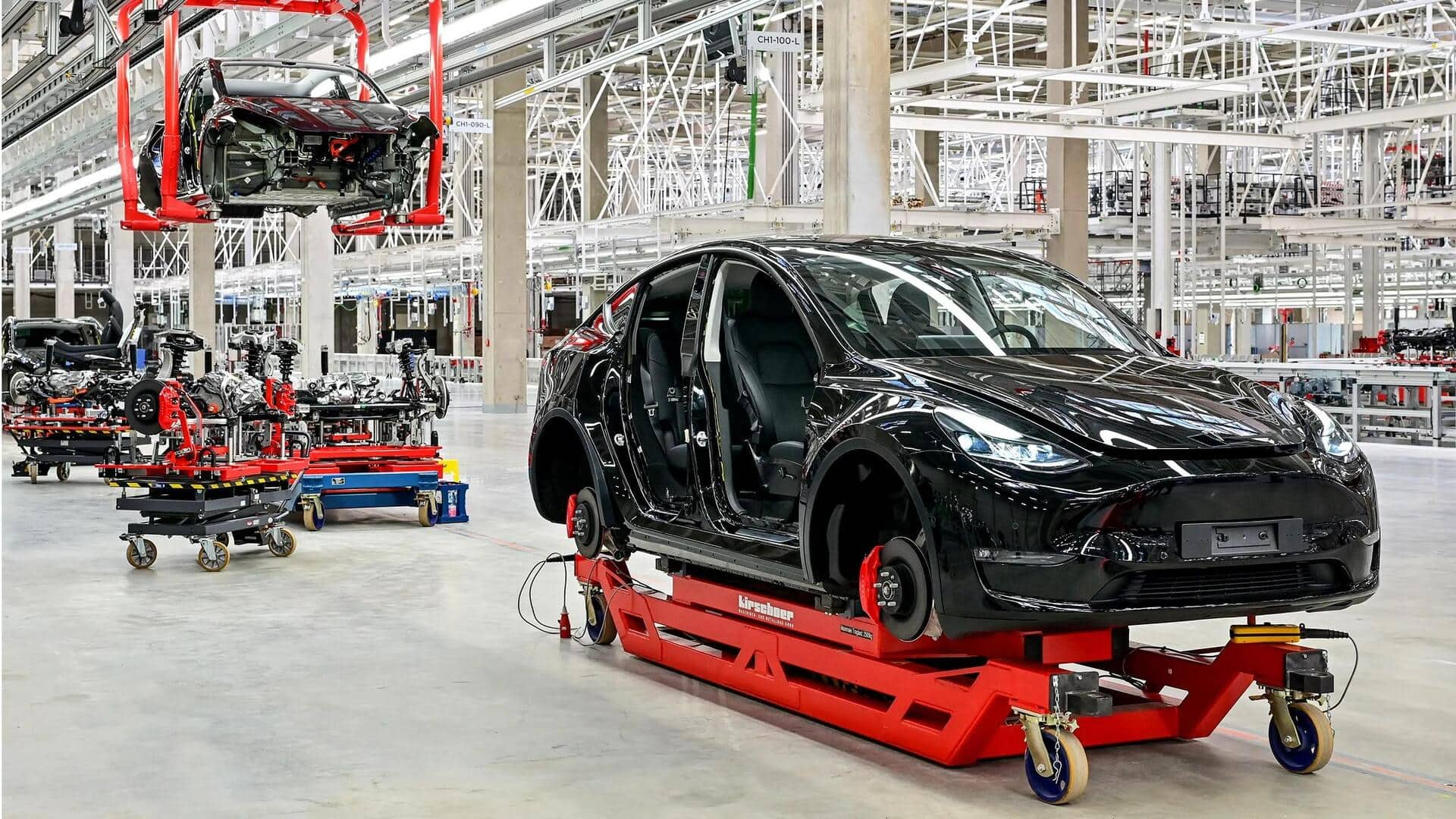
Red Sea conflict: Tesla suspends production at Berlin Gigafactory
What's the story
Tesla has decided to halt most of its production at the Berlin-based Gigafactory from January 29 to February 11.
This move it done due to a shortage of components resulting from attacks on merchant ships in the Red Sea.
The electric vehicle (EV) manufacturer is the first to report production disruptions caused by the ongoing Red Sea crisis.
Iran-backed Houthi rebels have escalated their maritime attacks in response to Israel's bombardment of Gaza, disturbing the flow of cargo vessels.
Impact
Impact on global supply chains and other companies
The Red Sea hostilities have forced changes in transportation routes between Europe and Asia via the Cape of Good Hope.
This severely impacts Tesla's production in the Berlin facility.
The company cited significantly longer transit times as the cause for supply chain gaps.
Other businesses, like Swedish furniture giant Ikea and China's second-largest automaker Geely, have also cautioned about potential delivery delays due to the ongoing crisis.
Other effects
US-UK launch strikes on Houthi targets
In response to recent Houthi attacks on commercial shipping in the Red Sea, the US and UK launched airstrikes targeting Houthi bases in Yemen.
US President Joe Biden said he ordered the latest strikes as a response to "unprecedented Houthi attacks" in the Red Sea against international maritime vessels.
The US targeted drone storage, radar systems, ballistic missile storage, and launch sites belonging to the Houthi rebels.